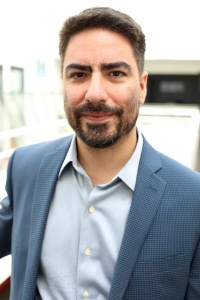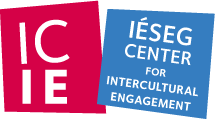Welcome to the latest addition to our ICIE website, the Member Focus. Each month we will feature a short focus article on one of the members of ICIE. To get the ball rolling, we have decided to put the focus on one of our more recent recruits, Felipe Guzman.
-
In what ways do intercultural engagement impact you at a professional and a personal level?

As a business school professor, I deal with culturally diverse people on a daily basis. The overwhelming majority of my students, colleagues, and coauthors come from countries other than my home country. By now, I’m used to the fact that outside my home, I don’t have many opportunities to speak in my mother tongue despite the fact that Spanish is one of the most widely spoken languages on earth! I have personally witnessed how this language issue has moved from my work life to my personal life. For instance, I’m still amazed by the fact that if a Spanish speaker asks me something as simple as “what do you do for a living,” I find myself struggling to answer that question in Spanish, but the answer comes quite naturally if I reply in English. I find fascinating that my wife, who was raised in a bicultural home, does not face this issue since she is used to switching between different cultural codes (and languages) since she was a little kid.
-
How/when did you become interested in the subject of intercultural communication/management/engagement?
I got my PhD from IESE Business School, and like most international business schools IESE is an organization that employs people from all over the world. However, what I discovered to be quite unique about IESE is that the formal conversations among staff are conducted not in two but in three languages (Spanish, Catalan, and English). Since the beginning of my studies at IESE, I was fascinated by the difficulties and challenges of dealing with culturally diverse people who perceive the world in ways that were so different from the way I was used to perceive the world. These differences where seen not only in differences in mother tongue (or in language fluency in the common language), but in non-verbal gestures or social values. In practice, I think that I became “too” interested in these issues since I end up conducting research on them!
-
What incited you to become a member of ICIE and what do you hope to get out of being part of the center and what do you hope to be able to contribute?
I believe life is too short to spend it talking about the weather. I do enjoy having interesting conversations with people and working and collaborating with like-minded individuals who have similar interests and seek to explore relevant questions. Therefore, as someone who is interested in understanding how differences in language and cultural values affect the attitudes and behavior of people both on- and off-the-job, joining ICIE was an obvious choice for me. I hope to be able to contribute by helping this center to grow and establish itself as an international referent on topics related to culture and intercultural engagement.

